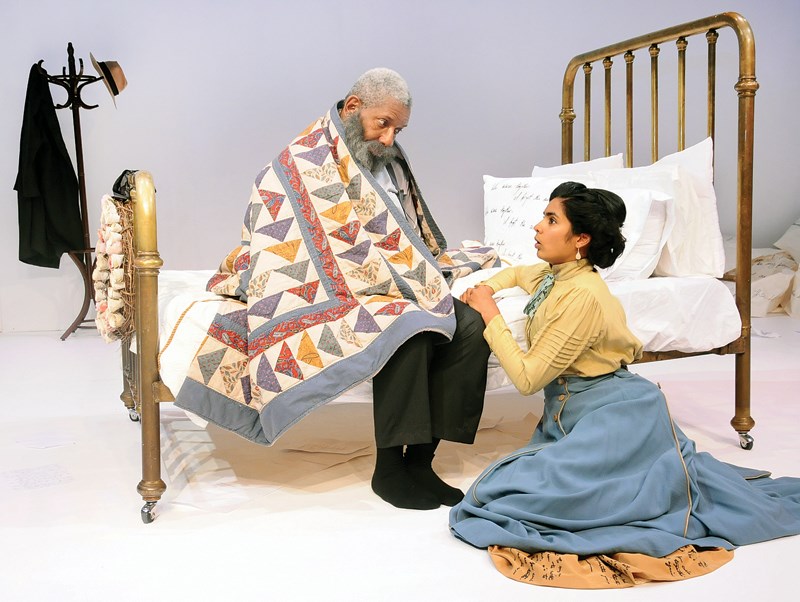Walt Whitman’s Secret. Produced by the Frank Theatre company.Written by Sean O’Leary, based on the novel by George Fetherling, Presentation House Theatre. Oct. 14-23. For more information visit phtheatre.org.
Love, in all its forms, fills the Presentation House stage as the Frank Theatre company takes a step away from their usual fare to delve into a historical drama exploring the complex and mysterious life of Walt Whitman.
Walt Whitman’s Secret is told from the perspective of Horace Traubel, the real-life author of the nine-volume biography With Walt Whitman in Camden, and is based off of Canadian poet and author George Fetherling’s novel of the same name.
While researching Whitman’s work, one of the things that astonished playwright Sean O’Leary most was the unlikely way he wrote about love.
“The historical Walt Whitman was somebody who never actually had an enduring loving or romantic relationship in his life. Rather, he went through a lengthy stream of lovers, so far as we know,” says O’Leary.
The driving theme of the play is the tension that arises when the idealized love, which Whitman so often wrote about, doesn’t quite match up with the actualization of love.
“The characters are searching through the play to define love and their relationship to it,” says Jack Paterson, director. “The text deals with many different forms of love – unrequited, denied, plutonic, passionate, private, shared … For me the play is about the secrets we keep inside – I long, I desire, I need and how those come into conflict both internally and externally. Why do we need poetry? To express what we cannot speak.”
But the love displayed on stage between all four characters is a dynamic dance that balances passion and tension very carefully, explains Chris Gatchalian, artistic producer with Frank. He sees
Whitman’s poetry as a defiant stand against a strain of intolerance toward the LGBTQ community that is still very much present in America today.
“It is an unabashed celebration of the erotic, of the sensual, of the body,” says Gatchalian.
“The characters – who are all based on historical real-life figures – cross the gender lines with regards to their sexual lives and who they fall in love with. So in the play there’s this sexual fluidity – this pansexuality – happening inside the tight constraints of late 19th century American society, which mirrors in some ways constraints still present in today’s society. Perhaps we’re no longer as homophobic as we used to be, but Puritanism has now taken the form of a tendency to want to pigeonhole people as either “gay” or “straight,” which is contrary to how grey and nuanced sexuality really is.”
Although Whitman never openly admitted he was gay, O’Leary says the theory was hard to dismiss among close friends, followers and analysts of his work. Nods to homosexuality in his work were routinely passed off as spiritual interpretation by many who were either unwilling to accept his sexuality or accomplices in protecting this secret.
“The implication being, well he’s not really gay, what he’s talking about is this idealized love and the sensation that he experiences,” says O’Leary. “He allowed that kind of rationalization to flourish because I think it served a couple of purposes; it insulated him but it also helped keep his poetry and his work acceptable to the general public at a time when, had he acknowledged his homosexuality, it would have certainly been devastating commercially to have done so.”
Despite the change of pace in subject matter, Frank Theatre continues to stay committed to bringing diverse talent to the stage. Tom Pickett, an African American actor and multiple Jessie Award nominee originally from Berkeley, California, plays Whitman and “embodies the rhythms and cadences of American English” that the role required, says Gatchalian. Adele Noronha, a recent graduate of the Studio 58 theatre program originally from India plays Anne Montgomery, wife of Traubel.
“I know they’re trying to reach a larger audience, but at the same time certainly do something that their core audience is going to greatly appreciate,” says O’Leary. “I’m really hopeful that this play will be successful in having them... create theatre and create an experience that you don’t have to be gay, or straight, or anything else to not just experience but really and genuinely enjoy.”



